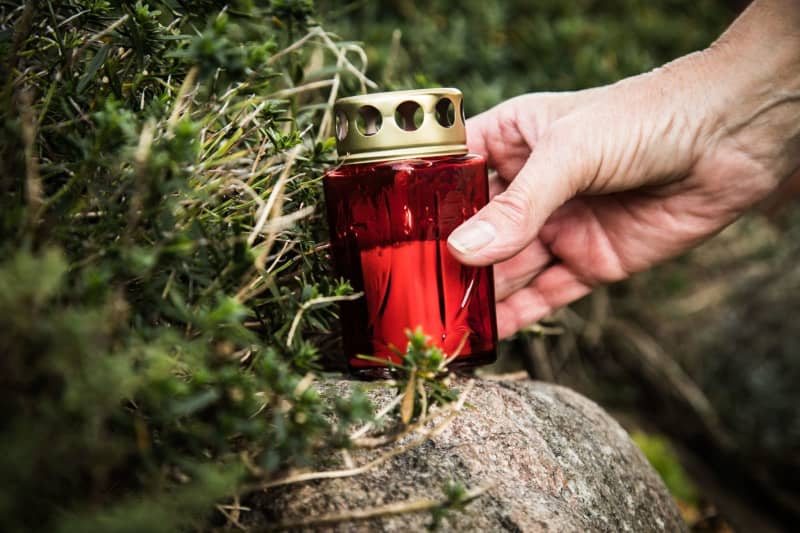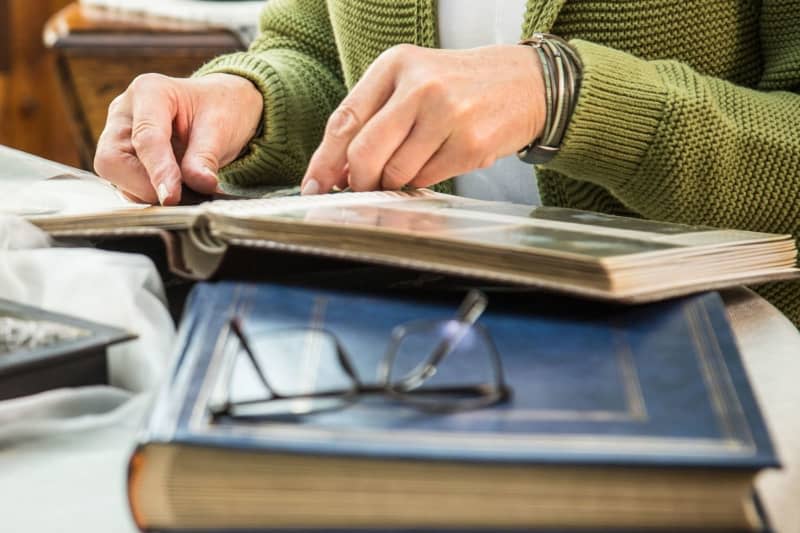Not 'stages' of grief, but 'tasks': Escaping the spiral of heartache

When a loved one dies, be it unexpectedly or after a long illness, the bereaved typically faces a challenge.
"First of all, it's important to grasp the reality of the death and the need to accept it," says Marei Rascher-Held, co-chairwomen of Germany's Federal Association for Grief Counselling (BVT).
Many experts in the field of grief psychology no longer speak of "stages" of grief that you passively go through, but rather of active "tasks" of healthy grieving, particularly in cases of traumatic losses such as the death of a child or death due to an accident, natural disaster, homicide or suicide.
"The grief process isn't linear, but a spiral, as it constantly loops back to heartache," says psychotherapist, grief counsellor and author Roland Kachler, adding that initially, all of the bereaved nonetheless have a single issue they must deal with: "It's simply shaping how you'll survive and go on living."
But first you've got to face reality - literally, says Rascher-Held: "It's extremely important to say goodbye at the coffin, because then the death truly becomes final for you, whether or not it was expected."
It also helps to see and touch the deceased, even if the death was due to suicide or an accident. "The sight of the corpse won't stay with you," she says. "In your memory, and in the connection to the deceased that you'll continue to seek, it will become whole again."
Task 1: Take action - and a little help from your friends
You also need people in your circle who stand by you as you grieve and do simple things for you unasked - perhaps prepare a meal now and then, for instance. "These are elementary expressions of caring," Kachler says.
It's not enough for someone to tell the bereaved, "You can always call on me," and then wait for a signal, he says, because "in this existential situation they won't call. They're preoccupied with themself and don't want to be a burden to others."
Well-meaning advice such as, "You have to learn to let go!" can even be counterproductive, says Kachler. On the contrary, his advice to the bereaved is to preserve the memory of the deceased and integrate it into their life. Their love for the deceased can remain, while their grief over the loss can subside.
For many of the bereaved, it can be helpful to gather memories and organize photographs, or to set up a memorial place in their home where they can regularly light a candle or arrange fresh flowers.
Or they can sit down in quiet at a place that was important in their relationship, or in an armchair or at a small table, where they can have an inner conversation with the deceased.
Task 2: Let your grief flow
The second thing you need to do is learn to live with your loss. When you see that your husband's place at the dining table is now empty, or your child's schoolbag is unused, the pain of the loss is acute. "Then it's important to let your grief flow," Kachler says.
Rascher-Held says she's found that writing can provide solace too - for example, writing down memories, keeping a grief journal or writing a letter to the deceased. "It's important to express yourself so that the grief comes out," she says.
The bereaved often struggle with a tangle of emotions. "Sometimes there's also intense anger at the 'injustice' [of the death], or a feeling of powerlessness so strong you think it will never go away." Joining a grief support group, in particular, can then be very helpful, remarks Rascher-Held.
Self-help discussion groups tend to be unappealing to men, however, points out Kachler, who says men are often better served by active workshops, hikes or weekend bicycle tours with other bereaved men: "Men grieve while they're doing things."
Task 3: Find a sanctuary for the deceased
The third task, as Kachler sees it, is to preserve your love for the deceased and find "a good, secure and protective place" for them. For some of the bereaved, that place is with God or in eternal light, for others it's in nature, a star, a rainbow or in themselves.
Task 4: Adjust to life without the deceased
Finally, it's important to adjust to life without the deceased and move forward. "The vacant space will surely remain, but life goes on and the deceased will be part of it as an inner companion, a source of energy or a resource," Kachler says.
Above all, "your life should have meaning and bring happiness again," he adds, although this will now be harder after your heavy loss. So how can you make it easier?
"Very cautiously do little things that do you good, and resolve the question of loyalty in an inner conversation with the deceased," says Kachler, conceding that in the year and a half immediately after your loss, especially if it was severe, this is only partly possible.
Rascher-Held recommends becoming conscious of your own resources and what you used to enjoy doing. "It really helps a lot to examine your biography and realize how you were before the person died, who you were before your world fell apart. Where can you rediscover yourself?"
You should think about whether there's something that you've always planned to do and now have time for, she says. "You allow yourself to do things that do you good, and it's all right to do them," be it signing up for a dance class, going on a journey or taking up painting.
"The empty space remains, and that's OK. The loss is now part of your life and your biography," Rascher-Held says. "You've lost an important person, but you go on living your life and try to find new meaning in it."
Kachler offers hope for the bereaved who tackle the various tasks in healthy grieving: "When you've completed them, they're really done," he says, which doesn't mean your grief disappears without a trace.
"There will always be moments when it hits you again," says Kachler, such as on certain anniversaries or special occasions. It won't be as intense though, manifesting itself more as "a little sadness" or melancholy.




